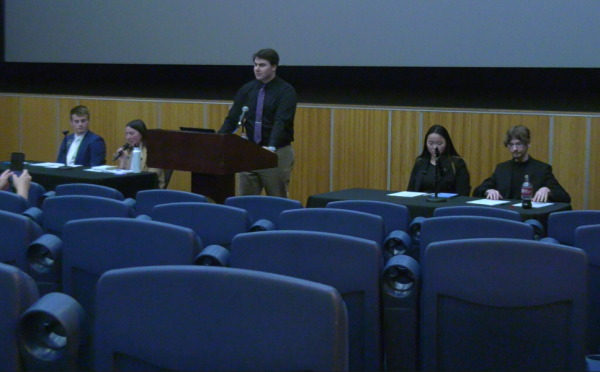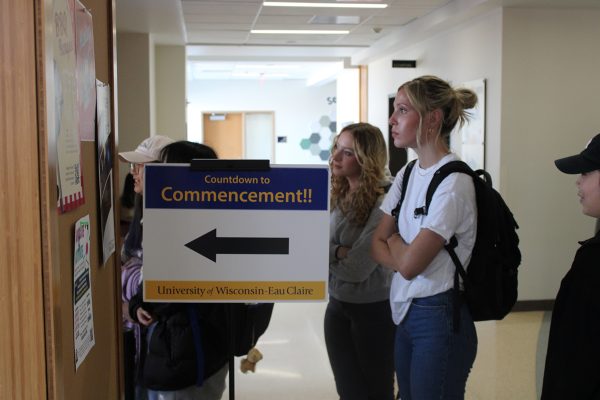Jury duty v. school duty

Long
April 9, 2014
In spring 2012 Cory Long, now a senior at UW-Eau Claire received a jury notice. However, he did not see his jury notice until after he was required to serve. When he realized he missed his required dates he contacted the courthouse to ask what the next steps would be.
“They asked what dates I could do,” Long said. “I just picked when I didn’t have classes.”
The process of jury duty is not bias, everyone has the opportunity to serve and everyone has the obligation or responsibility to serve if notified. However, the courthouse will normally work with individuals who are unable to fulfil the selected dates or have missed their dates.
“Anyone can serve,” said Kristina Aschenbrenner Clerk of Courts for the city of Eau Claire. “In some cases judges will allow you to defer.”
Everyone selected is obligated to serve two weeks of jury duty and the caseload can vary each week. Trials can vary. There is at least one in a two-week period and sometimes there might not be any, Aschenbrenner said.
Although Long did not serve during the semester, he did fulfil his obligation and he gained knowledge of the justice system.
“I didn’t know the jury had as much power as they do,” Long said.

Sophomore Devyn Molder received a jury notice in August of 2013, but was exempt because she had served in December of 2012 and she was about to begin fall semester at Eau Claire.
“It’s impossible to do any school work if doing jury duty,” Molder said. “Most trials are two to three days, but mine was a five-day trial.”
Both Long and Molder are qualified in the state of Wisconsin. A qualified person is someone who is a U.S. citizen, at least 18 years old, understands the English language and does not have a felony conviction.
The process of jury selection begins with the Department of Transportation, Aschenbrenner said. The DOT sends a list of potential jurors to the clerk of courts. This lists the residents of Eau Claire. Next, the clerk of courts sends out a questionnaire for citizens to fill out and send back, she said. Once all the data is collected and depending on the type of case, either civil or criminal, the process of elimination begins weaning out those who are not qualified.
When Aschenbrenner first began working for the Clerk of Courts, she said she remembers mailing roughly 10,000 jury notices, but only having a few hundred respond.
“Now it’s dwindled down to 6,000 a year,” Aschenbrenner said. “There are roughly 5,300 that are qualified.”
The feedback from serving jury duty is normally positive. Most citizens are proud to serve and they learn something from their experience, Aschenbrenner said.
“The citizens in Eau Claire are pretty good,” Aschenbrenner said. “Appearance rate is over 95 percent that says a lot for the citizens of Eau Claire.”
http://www.wicourts.gov/services/juror/index.htm










